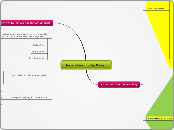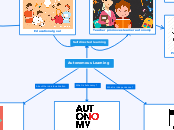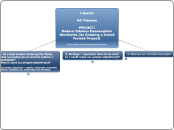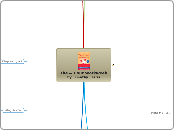Understanding by Design
Articles to Explore for the Assignment
Workplace Learning and Generation X.
Empathize
Five Approaches to Collaborative Learning
Apply
Perspective
Revisiting the Cone of Learning: Is it a Reliable
Way To Link Instruction with Knowledge Recall.
Self-Knowledge
Interpretation
Explanation
Six Facets of Understanding
Can EMPATHIZE:
For this facet, it requires students to challenge their assumptions and have an open-mind.
Intellectual empathy is essential if we are to make sense of ideas that we might quickly reject because of our own assumptions.
Students need to learn how to open-mindedly embrace ideas, experiences, and text that might seem strange, are difficult to understand.
They need to see how unusual ideas can be rich once they overcome their habitual assumptions.
What do I need to experience a time to understand?
What do they see that I don’t?
How does it seem to you?
find value in what others might find odd, alien, or implausible.
Can APPLY:
How can my thinking and action be modified to meet the demands of this particular situation?
How and where can we apply this knowledge, skill, process?
Must involve real-world problems
effectively use and adapt what we know in diverse contexts (transfer of learning)
Refer to the activity where the class had to decide how to attack the castle and shortly afterwards, were tasked to figuring out how to operate on a brain tumor.
Have PERSPECTIVE:
This is an opportunity to confront new ideas.
develop the ability to critically analyze the various points of views found in text and in discussions.
exposed to alternative theories and diverse points of view regarding the “big ideas.”
What is a novel way to look at this?
What are the strengths and weaknesses of the idea?
Is the evidence reasonable?
Is there adequate evidence?
What is assumed or at a tacit level that needs to be made explicit?
From whose point of view?
demands critical and insightful points of view
Have SELF-KNOWLEDGE:
Metacognition
The immature mind is thus not merely ignorant or unskilled, but unreflective.
the relation between our preferred methods of learning in our understanding (or lack of it).
The wisdom to know one’s ignorance and how one’s patterns of thought and action inform as well as prejudice understanding.
self-knowledge about how we think and why
How do I learn best?
What am I prone to misunderstand because of prejudice, habit, and style?
What are my blind spots?
What are the limits of my understanding?
How does who I am shaped my views?
perceive the personal style, prejudice, projections and habits of mind that both shape and impede our own understanding (metacognition - understanding the way we think).
Subtopic
We are aware of what we do not understand.
Can INTERPRET:
Characteristics of Interpretations
Framed by our experiences
Bound by the personal, social, cultural, and historical context in which they arise
What “sense” does it make?
What does it illustrate or illuminate in human experience?
Why does it matter?
What does it mean?
Ways to Show Interpretations
Make it personal or accessible through:
models
analogies
anecdotes
Images
Provide a revealing, historical or personal dimension to ideas and events.
offer apt translations
Tell meaningful stories (narratives)
The story behind it all.
The meanings and patterns we ascribe to all events, data, or experiences transform our understanding and perception of particular facts.
Can EXPLAIN:
Verbs that show "Explanation"
Substantiate
Prove
Verify
Predict
Generalize
Justify
Support
Example Essential Questions:
What are the connections?
What are the consequences?
This question forces the student to evaluate the implications.
What are the causes?
provide thorough, supported, and justifiable accounts of phenomena, facts and data.
This is to show something in relationship to other things.
These are inferences that are tied to specfic evidence which will show logical, insightful connections.
This is a knowledge of "how" and "why" rather than a recall of information.









